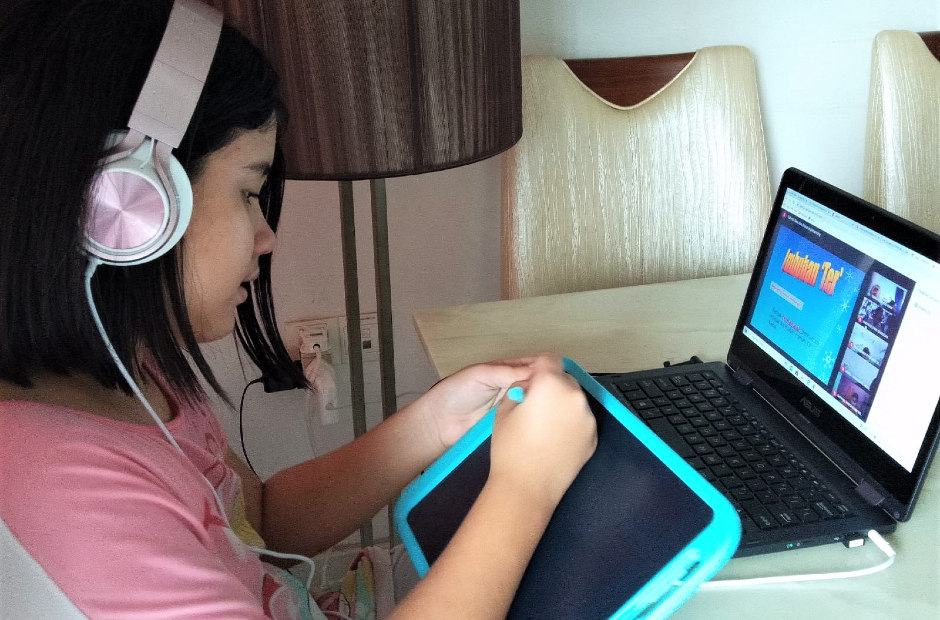During his first two years of secondary school, Jason Wong’s son frequently had nightly arguments with his mother over uncompleted homework.
“My son was a little rebellious, and the nights always ended with both parties being unhappy and a little bit of shouting,” shared the father of two.
But instead of punishing his defiant son, as many parents would, he took another approach. He sat his son down for a conversation, where he guided him to see things from a different perspective.
“I had him understand that one day, he will be a father and husband, and he had to respect the other gender,” he recounted.
The approach worked, and the disagreements lessened.
For Jason, a youth mentor and founder of the Dads for Life movement, this incident showed that guiding, rather than directing teenagers, is more effective.
While the early years of a child’s life involve parents setting boundaries for them and largely controlling their behaviour, children develop a desire for more independence as they enter their teenage years.
That is when clashes may arise with parents, who may still feel a need to maintain control over them.
But just as teenagers are changing, he said parents should also change their roles from being mainly caregivers, to counsellors in how they relate to their maturing children.
Teenagers and kites
The first step that parents should take is an effort to understand the many changes their teenage children are facing on a daily basis, said Jason.
For instance, they make the major shift from primary to secondary school, go through the awkward physical transformation that is puberty, and start to develop their own self-identity and feel a need to be accepted by others.
“It is a period where there’s a lot of pressure and a lot of figuring themselves out. The teens don’t know what’s happening to them,” he explained.
During this time, parents should walk the path alongside them, be patient with these changes, and help them to manage this period of their lives.
It is just like flying a kite, he observed. “Our objective is for the kite to fly high. You’ve got to know when to pull at it, and to let go for it to catch the wind.
“A lot of parents want their child to fly high, but are not willing to let go of the string. That’s where the strain happens.”
He shared an incident of a friend approaching him for advice regarding his teenage son, who had thrown a tantrum and shouted at his mother following a shopping trip.
The child had become angry with his mother after she had insisted on following him to shop for something he wanted, even though his father had asked him to do the task on his own.
“While the father gave him the chance to be independent, the mother had been too concerned and worried. Naturally he got angry. It’s all about knowing when to release that kite,” said Jason.
Parents need to take steps to let children gain independence slowly. “If parents are always directing, children will not be able to decide for themselves next time – and that will cause a lot of trouble during adulthood,” he remarked.
He suggested that parents also hold regular discussions between themselves to coordinate their parenting efforts in guiding their children on the path to independence.
For instance, to settle the dispute between his wife and son, Jason had conversations with his wife about loosening her control over their son to let him make his own choices. For instance, instead of forcing tuition classes on their son, he persuaded his wife to let the boy make the decision himself.
“Through all this, my wife has also learnt to let go, and not force issues when they arise,” he added.
Everyone needs love and affirmation
In his previous job as a prison officer, Jason noticed a pattern in the stories of offenders when enquiring about their background. Most of them come from broken or abusive families that did not show enough love for them at home, leading to emotional insecurities.
Many subsequently joined gangs to get the affirmation they desired and to find a sense of belonging.
“What a person needs, regardless of age, is respect, a sense of worth, value, and affirmation. These people couldn’t find those at home so they went out to find them, and that’s when they fell under bad influences,” he said.
Similarly, unmet needs and unhealed wounds will also lead to rebellion in adolescents. So how can parents restore fractured relationships?
They must be prepared to do things they may have not done before, he suggested. This may even mean doing the simple, yet difficult act of apologising.
“Everyone makes mistakes. Parents must also know how put down their pride, reflect on themselves and acknowledge their mistakes if they have committed them,” he added.
“When they say sorry to their children, it breaks down the barrier between parent and child, and it helps to heal wounds on both sides.”
Laying the foundations early
To reduce the chances of having such issues during a child’s teenage years, Jason advocated the importance of nurturing the parent-child relationship from a young age and build the foundations for a strong bond.
This means investing time to strengthen the relationship over the years.
“The earlier the parents invest in the relationship, the better. I always say what the parents do in the first 10 years will determine what’s going to happen in the next 10,” he said.
“The stronger the relationship, the easier it is to tide over the teenage years.”
Parents could start to build special memories with their young children, so that it remains an anchor in their lives that they can hold on to in difficult times, such as during the transition into their teenage years.
“These happy memories will give them the stability and assurance to know that their parents have been there for them.”
Even simple actions work. For instance, his wife would not let their daughter eat chips when she was young, so he would sometimes buy a packet of chips with his daughter on the sly, and consume the pack before they went home. Although his daughter is now 23 years old, it is a memory she treasures and still reminds him to this day.
The adolescent years may be a rocky path for both parent and child, but with proper handling, things will turn out well, assured Jason.
“Ultimately, all parents want their children to grow up and be independent. It is all about letting them go slowly and be there to guide them to make their own decisions in life.”






